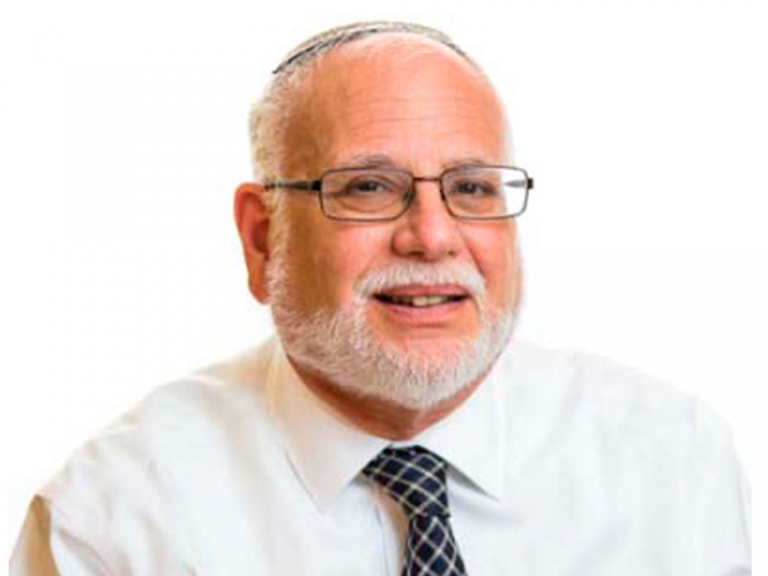D'var Torah by Dr. Kalman Stein, Interim Head of School

Dear Hebrew Academy Community:
Rabbi Shalom Noach Berezovsky (1911 – 2000), the Slonimer Rebbe, asks a question about Parashat Shmot which surely has occurred to all of us. Hashem appears to Moshe at the burning bush and commands him to go back to Egypt to be His agent in bringing about the Ge’ula, the salvation from Egyptian bondage. Now, everything we know about Moshe Rabbeinu would lead us to believe that when he responded “Hineini” to the voice of God from the burning bush he was not simply saying “Present,” he was, we would think, saying “I hear and obey.” But instead for the next thirty-five Pesukim, in a dialogue which according to Midrash went on for days, Moshe does everything he can to avoid the assignment, to the point that he finally angers God by saying “Shlach Na B’Yad Tishlach—Send whomever else You’d like to send!”
That doesn’t at all correspond to our understanding of Moshe Rabbeinu. The Slonimer explains that Moshe, whose unique modesty is extolled in the Torah, was not arguing with God. He was praying and begging Hashem to send someone else because he believed that the quality of the Ge’ula would be contingent on the greatness of the agent. Moshe’s modesty led him to fear that if he were the agent of salvation the Ge’ula would be of lesser quality than if someone more worthy—Moshe recommended his brother, Aharon—were to undertake God’s mission on behalf of Bnai Yisrael.
My friend and teacher Rabbi Dr. Jacob J. Schacter takes this answer in a very interesting direction. IF YOU HAVE thirteen minutes before or after Shabbat stop reading this and go to http://www.elitalks.org/patience-and-process to watch and listen to a master make an extraordinary point. But if you haven’t the time or it’s too close to Shabbat I will do my best to repeat Rabbi Schacter’s message. Rabbi Schacter begins with our first question: How can we understand Moshe’s refusal to simply say “Yes, Sir” and obey God’s command? Rabbi Schacter asks two additional questions: 1. Where was Moshe’s empathy for his brethren in Egypt? How could he refuse the opportunity to free them from slavery? We know that Moshe did care about the plight of his fellow Israelites: After all, it was because he had killed an Egyptian who was beating an Israelite slave that he was forced to flee. Why now the reluctance to be the agent of salvation? 2. How exactly are we to understand the unusual wording and impertinence of telling God “Shlach Na B’Yad Tishlach—Send whomever else You’d like to send!”
Rabbi Schacter, like the Slominer Rebbe, answers that Moshe’s long argument with God was based on his concern for the future and his love of Am Yisrael. “Send whomever else You’d like to send,” meant—based on a midrash—send the person whom You are eventually going to send. That is, don’t send me, send Eliyahu HaNavi, who, in our tradition will be the harbinger of the final and eternal Redemption of the Jewish People. If You send me, Moshe argued, I’ll free them from Egypt and get them to Har Sinai and to the border of Eretz Yisrael. But think of what the future will hold: The destruction of the first temple, exile, the destruction of the second temple, a long and terrible exile, centuries of persecution, massacres, expulsions, pogroms, the Shoah, young soldiers being run over by a terrorist in the streets of Yerushalayim. Please send Eliyahu now, Moshe begged. Bring about the final Ge’ula now and spare your people endless centuries of misery as they await the messianic age.
And God’s response? I’m sorry, Moshe, eventually I will send Eliyahu but now I am sending you. Redemption doesn’t just happen. Ge’ula is a process. Blessings are a process. They take time. People cannot just have blessings, cannot just have Redemption. Redemption is not zero to one hundred in ten seconds. Redemption is a process. We want blessings for ourselves, for our communities, for Am Yisrael and Medinat Yisrael. But we have to work for them. We want our co-religionists in North America to be engaged and affiliated. We want the people of the State of Israel to live in peace and security. But not only do we need to work toward these ends, we also cannot become frustrated and give up when the process is too hard or involves some failures and setbacks. The Redemption will come but only with patience as part of a millennia-long process in which we all must participate.
I have often used Rabbi Schacter’s message as I have spoken to my school colleagues and to parents, especially to parents of adolescents. We all want so many things for our kids. We eagerly await their intellectual, religious, and social maturity. We become impatient and frustrated when there are bumps, sometimes mountainous bumps, along the way (and conveniently forget about the bumps that our parents watched us experience as we grew up). We look at wonderful youngsters who are just at early stages of development and are upset because they are not yet where we think they should be at the end of the process. Growing up, educating, and parenting are processes. The blessings we expect and pray for our children will come but we need to foster an environment in which they can work, struggle, experience and surmount failures. Redemption will come. We just all need to work for it.
Dr. Kalman Stein
Interim Head of School

